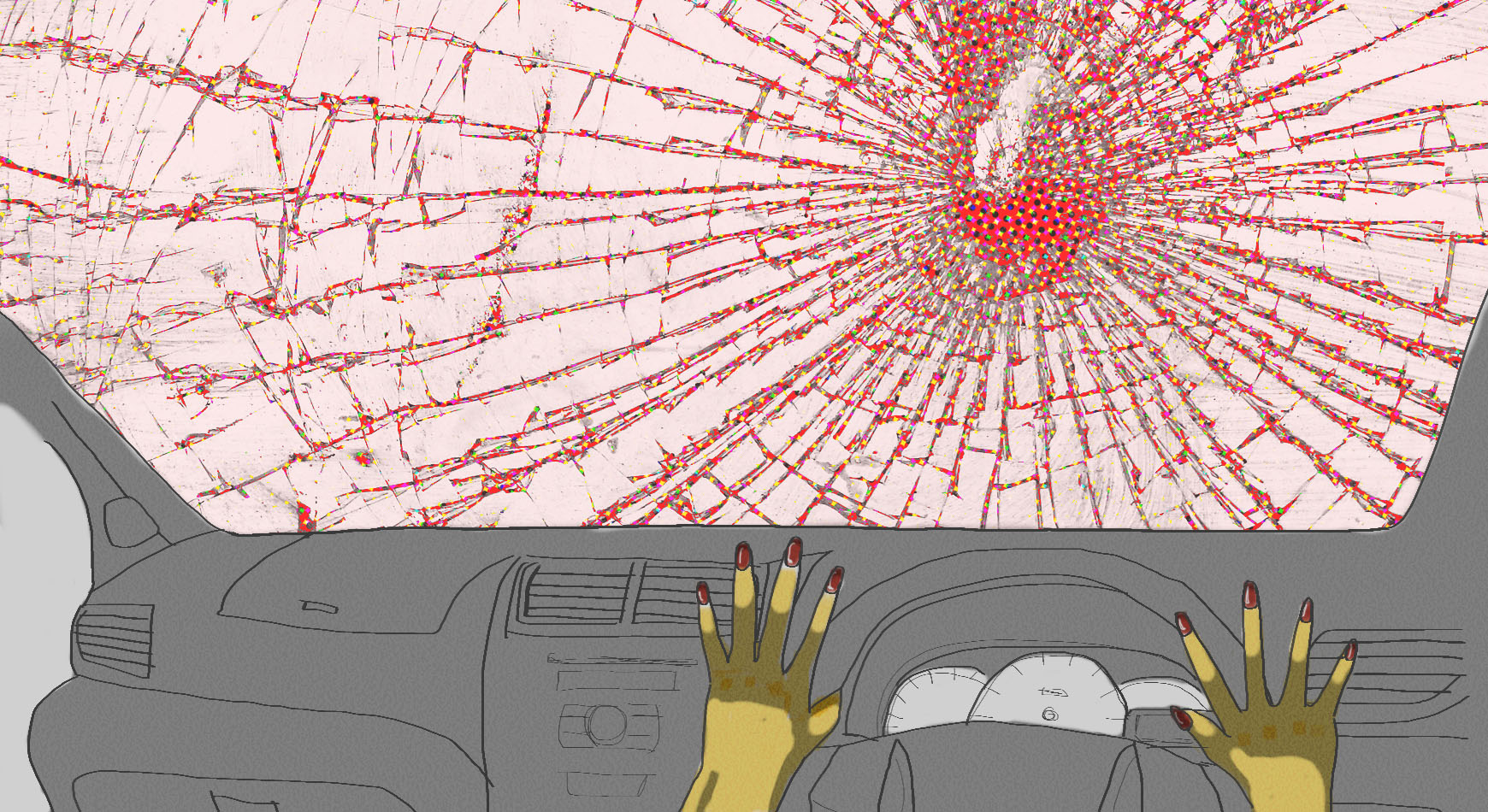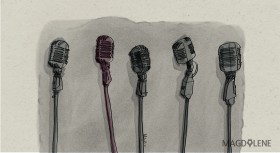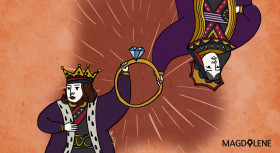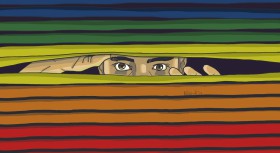I slowed down and honked hard, but the motorcycle kept coming at me. It was on the wrong lane, but inside me, like some blind faith, I assumed that it would swerve to the correct lane soon, as anyone in their right mind would. Only it never did.
I pressed the brakes to the floor, and then my legs let go so suddenly, prompting the engine to die. My body lunged forward and the seatbelt bit into my chest. The sequence happened faster than one heartbeat. The motorcycle crashed into my fender louder than an explosion inside my head. The motorist was propelled up and forwards, dishonorably ejected from his seat. He crashed into my windscreen, rolled over and landed on the asphalt.
I screamed, the million follicles of skin bristling in a panic my head could not immediately control. People were surging out of nowhere, emerging out of the grays and greens of pavements and trees, swarming around my car like preying ants. There was no thinking, only a distant bleeping, "Is he dead? Is he dead? Is he dead?" Maybe I said it out loud, maybe I didn't.
Before jumping out of the car, my husband put his hand on my arm; “You did nothing wrong.”
He was a pizza delivery boy on his way home from work. He was exiting his office, making for the lane across the street, but for some reason he swerved to the right before he even reached the lane separator. The swarms of people surrounding my car were his colleagues who had come rushing out immediately. They carried him and his motorcycle back into the parking lot, and I slowly turned on my engine and followed them. The front wheel of the motorcycle was perfectly dented – the way only a head-to-head collision could make – turning into a bizarre oblong shape.
The victim was alive, awake, with no blood to be seen. He seemed to be in pain.
"We need to get him to the hospital, now" I said to no one. Their voices drifted with confusing heat. A woman with short hair and a leather jacket appeared out of nowhere, I heard disembodied voices saying "policewoman".
She asked who drove and they pointed at me and she said, "Oh, no wonder." I had no time to feel fury at what that meant. Everyone seemed to have something to say.
Finally a security guard approached me and said, “Listen, there is a policewoman here who wants to handle this and we both know it is too much fuss, the police station, the settlement fees, so why don't we get him to the hospital and then we can come back here to settle things.”
I said, "Let's get him to the hospital."
We stayed at the hospital for three hours. He had no broken bones and did not need a surgery, only a few pills to reduce tissue inflammation. We bought his medicines, paid the medical bills and bought tea for his half dozen of friends who showed up at the hospital. The security guard seemed energetic, eager to be the go-between, the fixer. Before we could get into our car he said let's all sit down now and make sure we all leave in peace. He said he’d had a discussion with the victim and would like to explain what they discussed. The guy's motorcycle, as you know, is broken, he said, so what are we going to do about that.
"It's not our fault. He was on the wrong lane."
"Well I didn't see what happened, but...."
"Ask him. He knows what happened."
"Okay that's all right. My point is that no matter what happened, the fact is that his motorcycle is still broken."
"So is my car."
"Yes but your car can still run. His motorcycle can’t; he doesn't have any ride now."
"He broke our car, he should pay for it but we are not asking him to. He broke his motorcycle, he should pay for it."
"But that is not fair."
"Fair? What do you think is fair?"
"Come on. Everybody knows that when a motorcycle and a car collide, it is the car that has to pay the motorcycle. Everybody knows this. The car is more fortunate, has more money."
I have never felt more naive than at that moment, confronted with a twisted logic so passionately delivered. All the years of law school do not prepare you for this. All the years of being taught as a child that when you make a mistake you need to bear the consequences, do not prepare you for this.
Of course I could have told him that and given him a quick education on how law, justice, and responsibility work. But what would they care? They have probably observed that justice seems to be most effectively obtained through bribery. They have probably observed that the rich have a mandated responsibility to pay alms and charity to the poor. There is a huge zakat banner to remind us of this right across the hospital.
Sitting on the curb, the victim said, "I have friends in the military. I can call them to get down here." He was a young man who obviously had no idea of the proper timing and situation to make feeble threats.
My husband said, "We could have left you. Do you really believe we did anything wrong?" He went silent. We gave him a large sum for repairs, out of solicited pity. The security guard brightly asked for “appreciation” and we gave him a bit too, out of exhaustion.
The motorcyclist thanked us for the charity. Would his injuries alone compel him to drive more responsibly? In a city filled with complex lives and personalities, the sole act of giving money will never be able to answer the difficult questions. I only know that in the end it does not feel like charity at all. It is just a transaction for convenient justice.
About Tiza Mafira
Tiza Mafira is a lawyer based in Jakarta and is passionate about environmental issues. Most of the things she writes about have nothing to do with any of that.








Comments